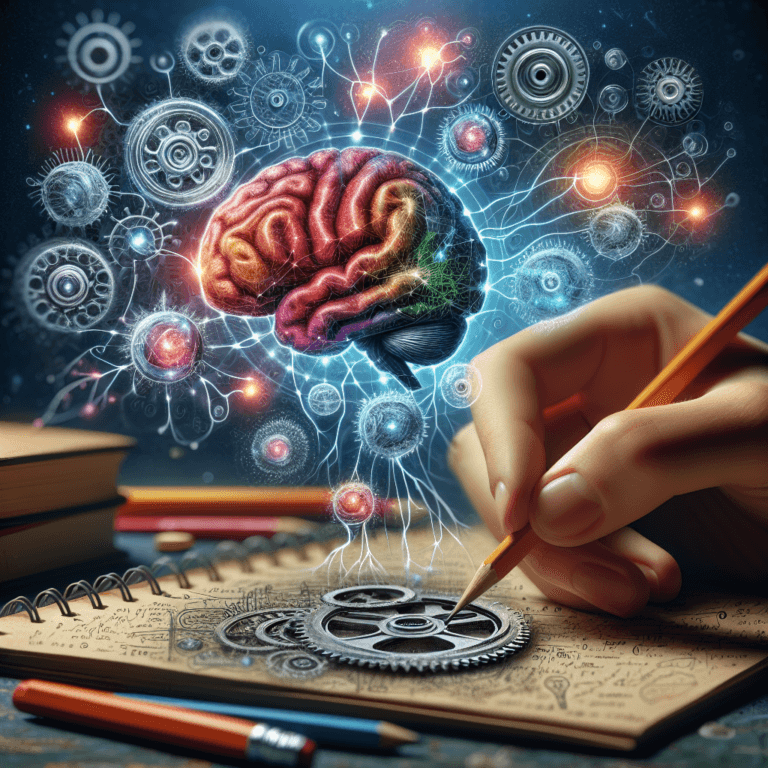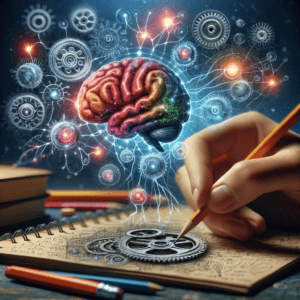Fundamentals of How We Learn: Insights from Cognitive Science
Understanding how we learn is essential for improving educational practices and enhancing personal development. Cognitive science, an interdisciplinary field that combines psychology, neuroscience, linguistics, and other disciplines, provides valuable insights into the mechanisms of learning. By examining these fundamentals, we can gain a clearer picture of how knowledge acquisition occurs and how to optimize it.
1. The Role of Memory in Learning
Memory is a cornerstone of the learning process. Cognitive scientists categorize memory into different types: sensory memory, short-term memory, and long-term memory. Sensory memory captures information from the environment for a brief moment, while short-term memory retains information for a limited duration. Long-term memory, on the other hand, allows for the storage of knowledge over extended periods.
For effective learning, information must transition from short-term to long-term memory. Techniques such as spaced repetition and retrieval practice have proven effective in facilitating this process. Spaced repetition involves reviewing material at increased intervals, while retrieval practice entails recalling information from memory, which strengthens neural connections.
2. The Importance of Attention
Attention plays a crucial role in learning. Cognitive scientists emphasize that focused attention is necessary for information to be processed effectively. Multitasking or distractions can hinder learning by splitting cognitive resources. Techniques to enhance attention include minimizing interruptions, setting specific learning goals, and utilizing mindfulness practices. By improving focus, learners can enhance their ability to process and retain information.
3. The Power of Engagement and Motivation
Learning is not purely a cognitive process; emotions and motivation significantly influence it. Engaged learners retain information better and are more likely to apply what they have learned. Intrinsic motivation—interest in the subject matter—can lead to deeper engagement than extrinsic motivation, which stems from external rewards. Educators and individuals alike benefit from creating environments that stimulate curiosity and foster a genuine interest in learning.
4. The Influence of Prior Knowledge
Prior knowledge serves as a foundation for new learning. Cognitive scientists assert that learners build on what they already know, making connections that facilitate understanding. This phenomenon, known as schema theory, suggests that effective learning involves activating existing schemas or frameworks in the brain. Educators can tap into this by assessing students’ prior knowledge before introducing new concepts, allowing for more meaningful learning experiences.
5. The Impact of Feedback
Feedback is a critical element of the learning process. Constructive feedback helps learners recognize their strengths and areas for improvement, fostering a growth mindset. In educational settings, timely feedback can guide students in their learning journeys, reinforcing correct information and correcting misconceptions. Research indicates that feedback should be specific, targeted, and actionable to be most effective.
6. The Benefits of Collaboration
Learning is often enhanced in collaborative environments. Social interactions contribute to deeper understanding through discussion, explanation, and shared experiences. Collaborative learning encourages learners to articulate their thoughts, confront differing viewpoints, and collectively solve problems. Additionally, teaching others can solidify one’s own understanding of the material, a concept known as the “protégé effect.”
7. The Role of Practice and Application
Practice is essential for mastering new skills and knowledge. Cognitive science highlights the distinction between rote memorization and meaningful practice. Engaging with material in varied contexts and applying knowledge to real-world scenarios leads to better retention and understanding. Deliberate practice, characterized by focused, goal-oriented efforts, is particularly effective for skill acquisition.
Conclusion
The insights from cognitive science provide a rich understanding of the fundamental processes underlying learning. By recognizing the roles of memory, attention, engagement, prior knowledge, feedback, collaboration, and practice, educators and learners can create more effective strategies for knowledge acquisition. Embracing these principles not only enhances educational outcomes but also supports lifelong learning—empowering individuals to continue growing and adapting in an ever-changing world.







